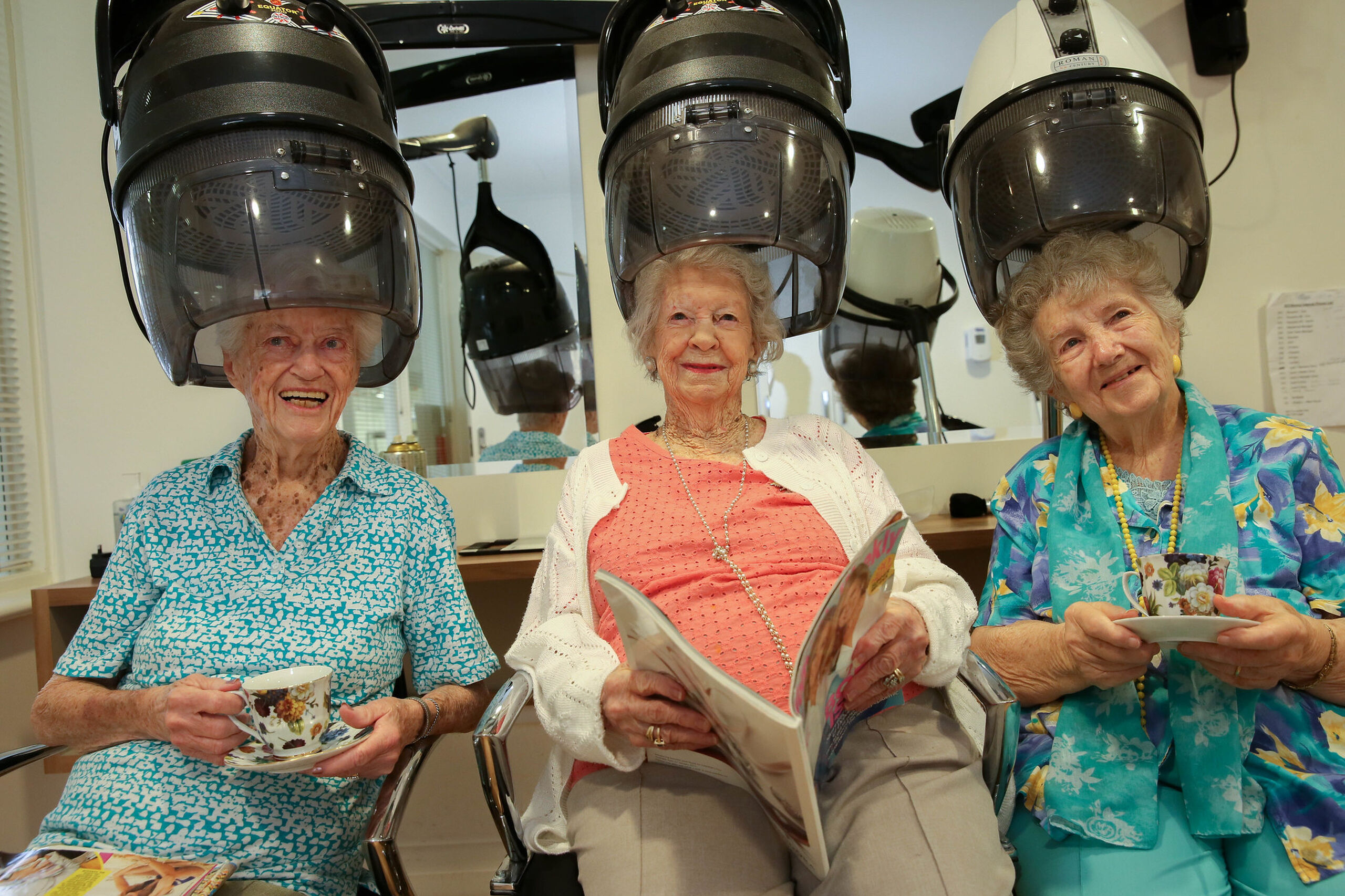23 April 2024
Stories
If you’re new to aged care, you might be confused by all the different terms. Is a nursing home the same as a residential aged care home?
In short - yes. Both terms refer to an aged care facility that provides access to round-the-clock care in an environment that has been designed to look and feel like home.
These days though, residential aged care has a more holistic approach to resident care. As well as a medical focus, there is a strong emphasis on older people’s emotional and spiritual care needs.
This means that residential care homes are run by multidisciplinary teams of highly skilled staff – as well as medical professionals like registered nurses (RNs) and physiotherapists, you’ll also find care workers, chaplains, and lifestyle specialists.
Read on to learn more about what you can expect in residential aged care.
In this article:
- Unpacking the jargon – what’s what in aged care?
- Which type of aged care is best? An easy guide
- What to expect from Residential Aged Care
- Is Residential Aged Care affordable?
Unpacking the jargon – what’s what in aged care?
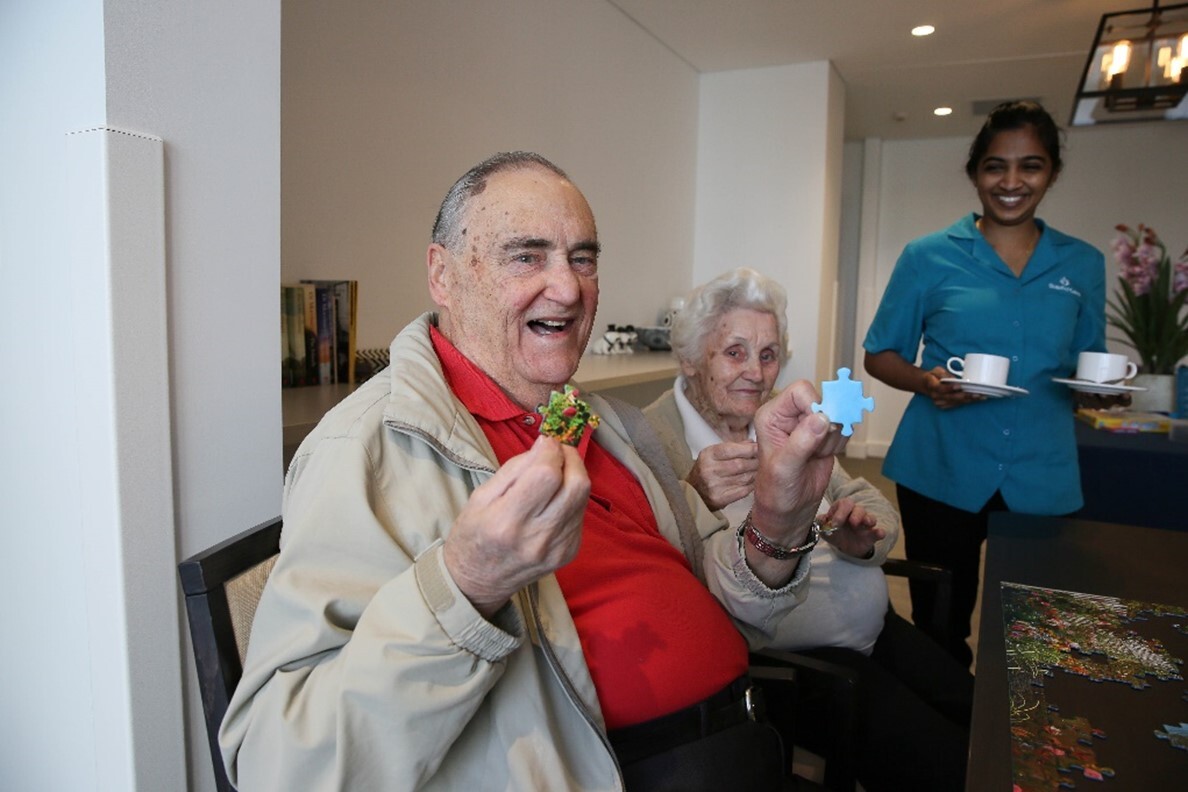
Nursing homes – now an outdated term - can also be known as:
- An Aged Care Home
- A Care Home
- An Aged Care Facility
- Residential Aged Care
There is no difference between a Nursing Home and a Residential Aged Care Home – the terms are often used interchangeably.
Within the industry, Residential Aged Care officially replaced the term ‘Nursing Home’ in the late 1990s after the creation of The Aged Care Act 1997, which brought about significant changes to the way older people are cared for in Australia.
One of these changes was a shift from what was predominantly ‘nursing’ care and hospital-like environments to a more home-like space catering to residents’ emotional, spiritual, and physical needs.
Residential Aged Care Homes and Nursing Homes are not to be confused with Retirement Villages or Retirement Living, which are a cluster of homes and facilities designed for people over the age of 55, typically those who are living independently and who do not need ongoing, full-time care.
How do I know which type of aged care I need?
If you’re new to aged care services and are still exploring your options, you may be wondering which services are best suited for you or your loved one.
The best place to start is by examining your own care needs and what’s needed to keep you living safely and well.
We’ve listed the main options below to guide your thinking:
Home Care – For those who need support living at home
Do you or a loved one need some support but don’t yet require round-the-clock assistance? In this case, you might consider a Home Care Package.
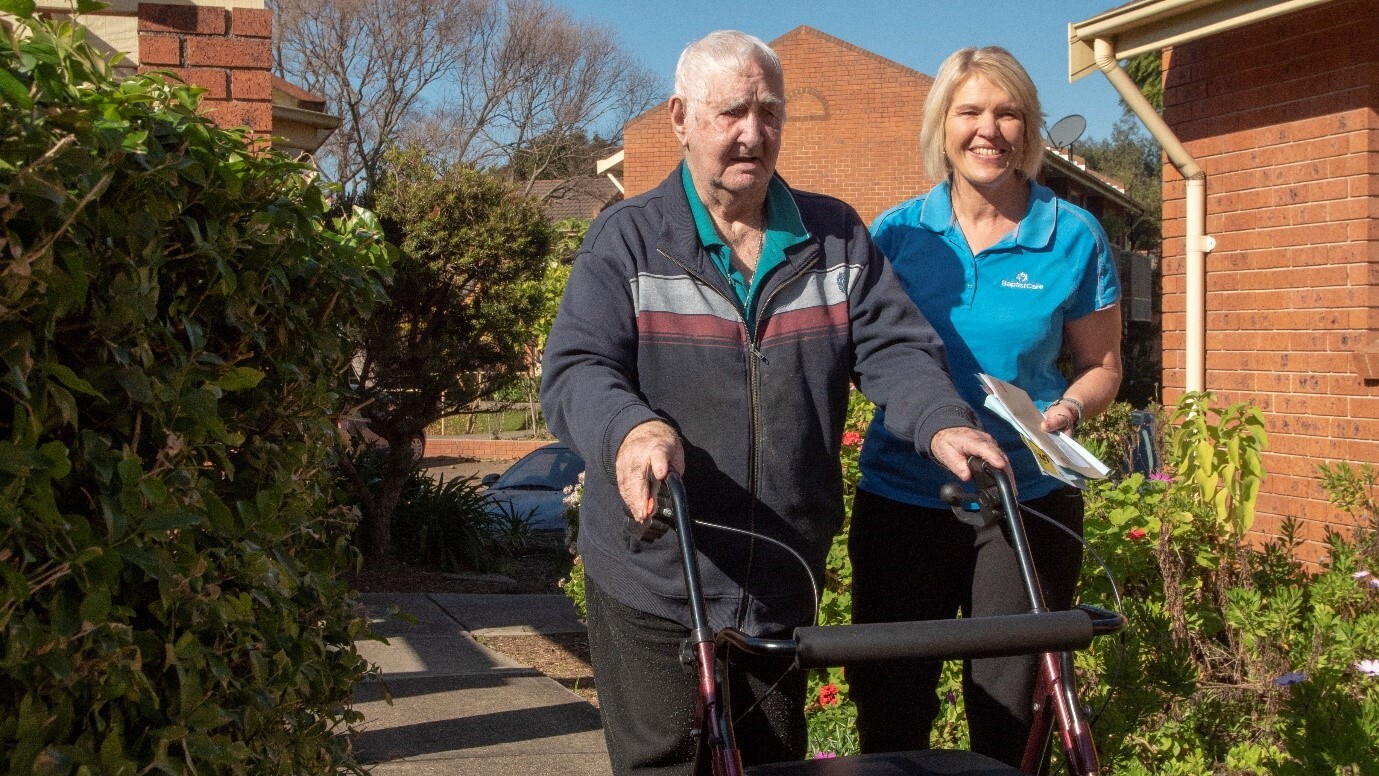
Home Care Packages are a form of government funding that helps older Australians live safely and well in the comfort of their own home.
Services offered through the Packages can vary widely depending on the need – they can range from weekly housekeeping to high-level support for complex care needs.
Read more about what’s included in the Home Care Packages program here.
Residential aged care – When support is needed night and day
Are you or your loved one struggling with the tasks of everyday living, such as cooking a meal, washing, or toileting? Is additional support required 24/7? If so, a residential aged care facility may be the best option to help you or your loved one stay healthy, safe, and continuing to enjoy life.
Residential care home teams comprise highly skilled staff, including Registered Nurses (RNs) and physiotherapists.
Short-term care
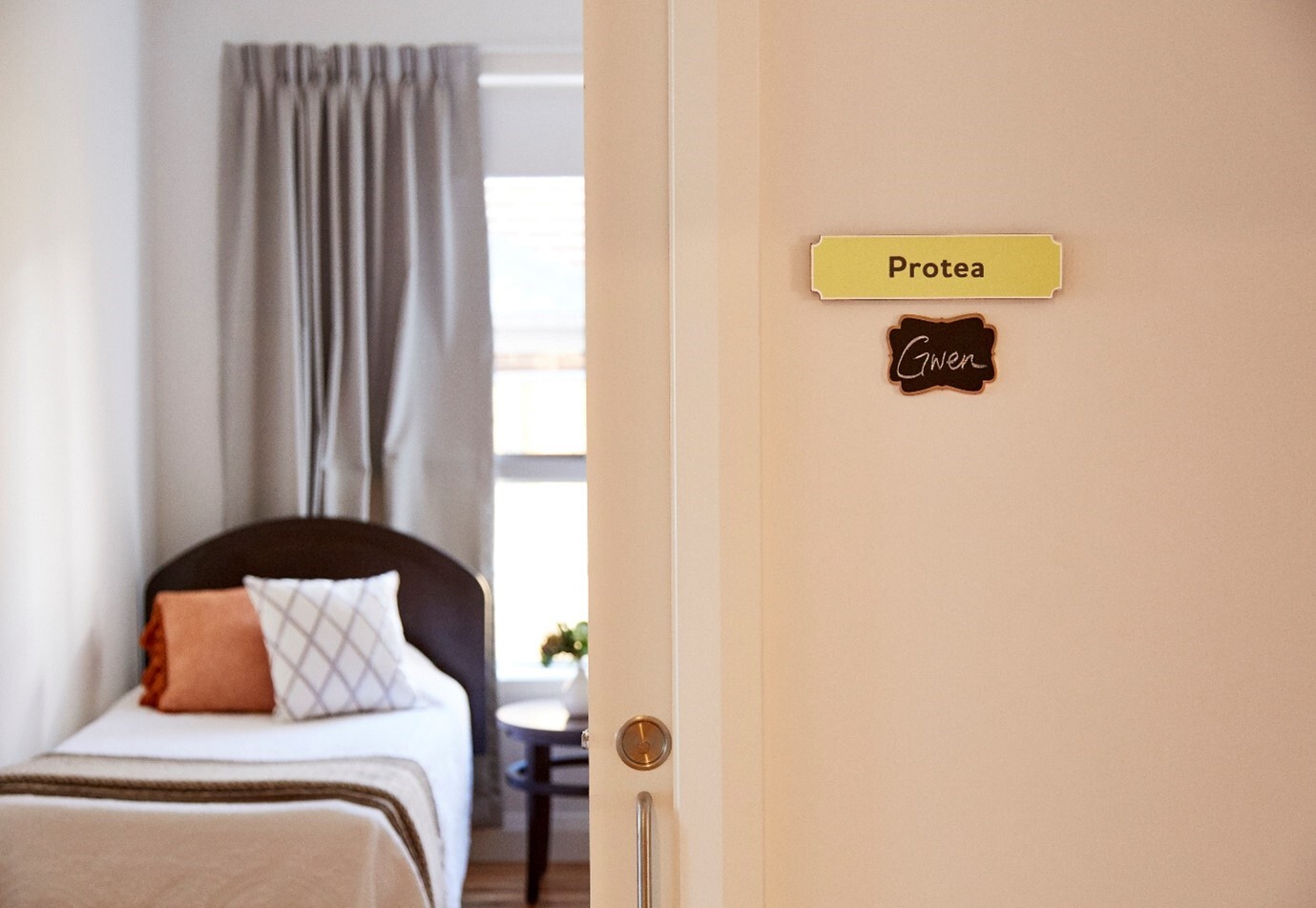
Do you or your loved one need some temporary support and assistance? Perhaps you are recovering from a recent operation or illness, or your primary caregiver needs a break.
Residential respite care provides short-term care and can be planned as part of your weekly routine, scheduled for just a few nights or, in some cases, several weeks or months. There is also emergency respite care available should you need it. Learn more about respite care options here.
What aged care services can I expect in a residential care home?
The first thing to remember is that residential aged care is a home-like environment. Somewhere you can relax and feel safe.
Along with your own private ensuite room, you can expect to find cozy living spaces, delicious home-cooked meals, and peaceful nooks where you can unwind.
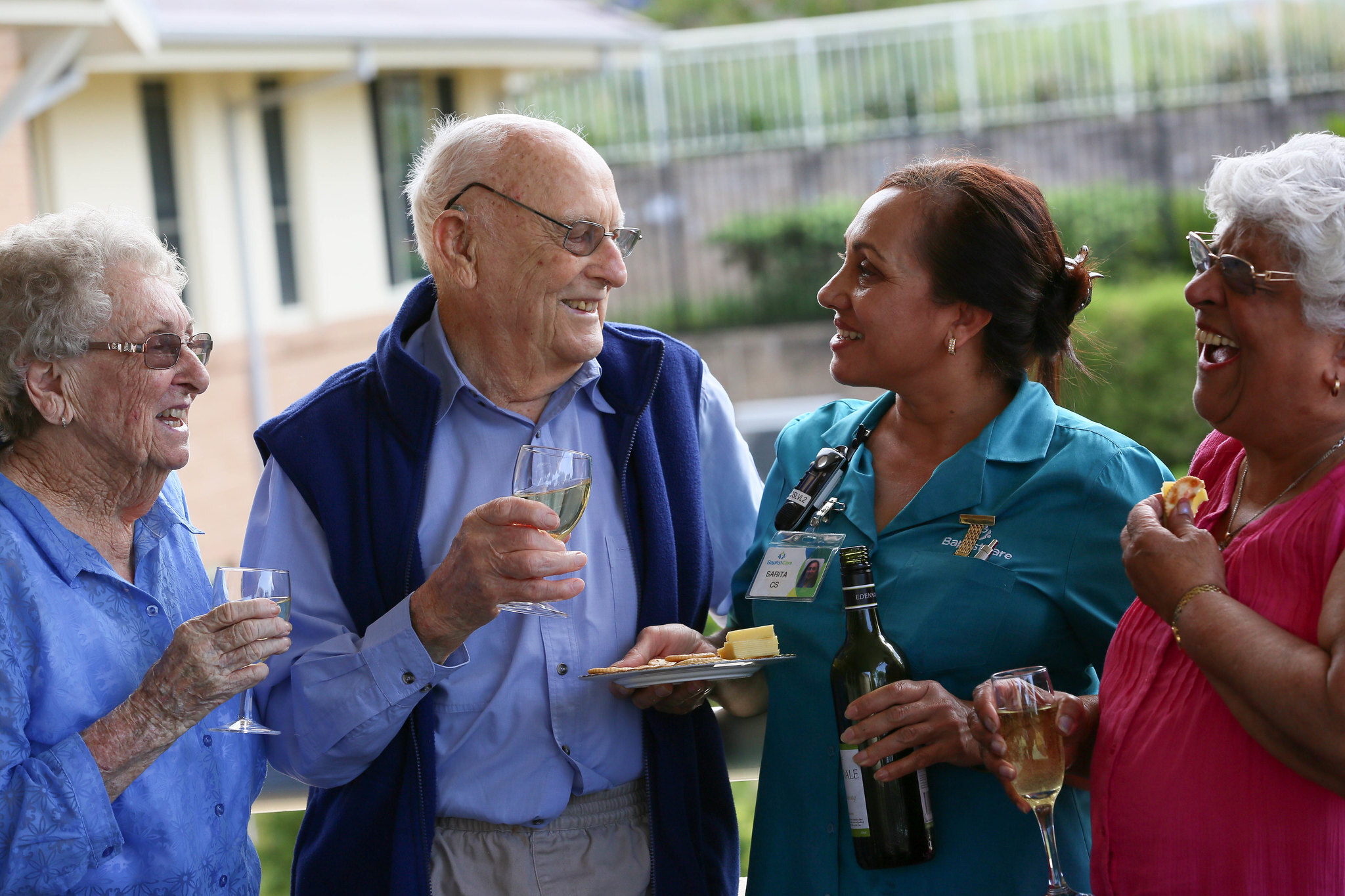
Residential aged care homes also focus on residents’ social and emotional needs, with specialist teams who create engaging leisure programs full of fun and meaningful activities.
Studies have shown that older people who keep up with hobbies and different social and physical activities around their care routine report a higher quality of life in residential aged care, so creating a positive lifestyle is a top priority for care teams.
One of the best things about residential aged care is having staff available to care for you 24 hours a day if needed. They can support with things like:
- Nursing
- Personal care such as washing, dressing, and toileting
- Cooking and serving your meals
- Laundry – washed, dried, folded and returned to you
- Specialised dementia care
- Chaplaincy support for you and your family
- Palliative care
To read some first-hand experiences of life in residential aged care, hear from Elizabeth, who moved to BaptistCare Cooinda Court a few years ago, or Annette, a Parkes local who is loving life at BaptistCare Niola residential care home.
Can I afford residential aged care?

In Australia, the government subsidises a significant portion of residential aged care costs, allowing everyone to access the right care when they need it.
If you can afford to contribute, you’ll be required to pay towards your care, and this amount will be determined via a means test called an Income and Assets Assessment.
The exact amount you will pay is determined by your income and the assets you own, the type of aged care facility you choose, and your eligibility for government subsidies.
You can read further information on funding options for residential aged care in our blog, Who Pays for Residential Care Homes in Australia?
Am I eligible for government-funded residential aged care?
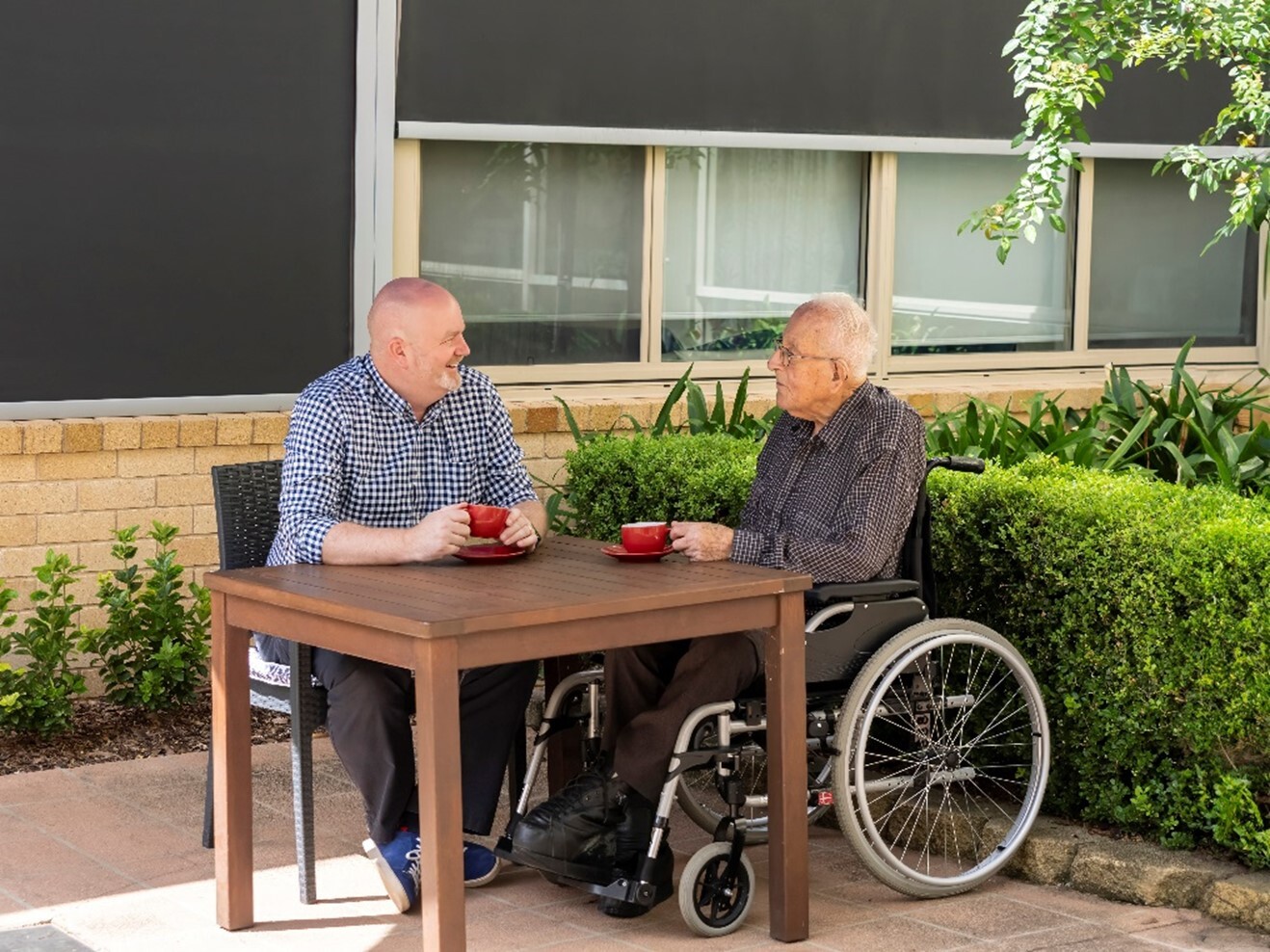
You may be eligible for government-funded residential aged care if you are:
- 67 years of age or older (50 years or older if you identify as an Aboriginal or Torres Strait Islander person)
- In need of ongoing help with everyday tasks or health care
- Struggling to live at home, even with some support.
To find out if you are eligible for aged care services, the first step is to arrange an assessment with a member of the Government’s Aged Care Assessment Team (ACAT).
This is a group of health professionals such as doctors, nurses, and social workers whose job is to establish whether someone is eligible for subsidised aged care.
Assessments are done in person, usually at your own home. They can also be conducted in hospital or over the phone if required, and you are welcome to have a family member join you for support.
Applying for an ACAT is free of charge, and easy to arrange. You can either:
- Organise the assessment yourself by contacting My Aged Care on 1800 200 422 or at myagedcare.gov.au
- Visit your GP and ask for a referral.
Navigating the ACAT process can initially seem overwhelming, which is why we’ve broken the process down into five easy steps and answered your most commonly asked questions in our complete guide to the ACAT process.
Find BaptistCare aged care services near me
If you would like to know more about BaptistCare residential aged care services, why not chat with one of our friendly team – we’d be happy to talk with you about your situation and care needs and can arrange a tour around your nearest BaptistCare residential aged care home.
Use our simple online search tool to explore BaptistCare Aged Care Home locations across New South Wales and the ACT.
Click the link below to learn more about BaptistCare's
Residential Aged Care | MyTeam | Understanding Aged Care | Financial Guide | Find a centre
